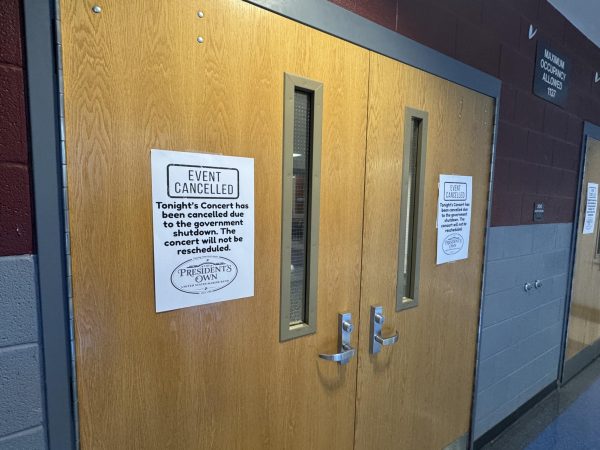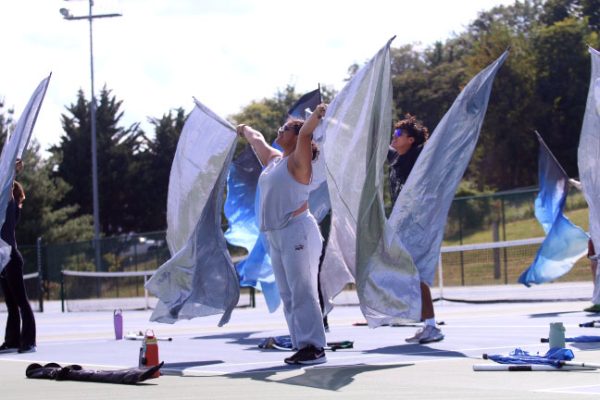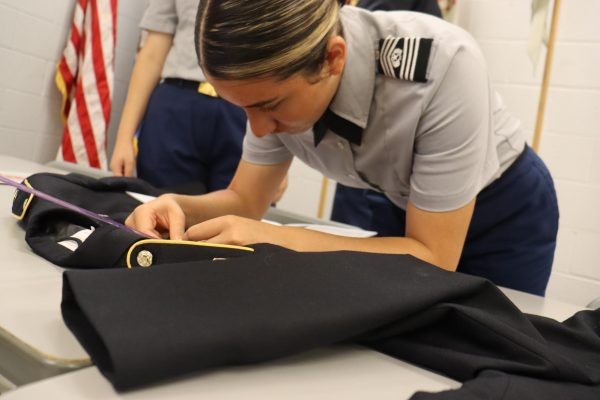Childs sparks conversation about scooter safety
Grendelkhan via Wikimedia Commons
Bird scooters sit on the sidewalk in their “nest.” Bird and it’s competitor Lime have inundated Harrisonburg with scooters.
It’s dark, it’s freezing, and you just want to get home. After spotting the iconic glow of a scooter, you step on, swipe your card, and zip off. Bird, the first company to launch rentable electric scooters in the U.S., was also the first to litter Harrisonburg’s streets with its motorized rides, but has since been joined by Lime, another electric scooter company. The presence of these companies has made it easy for individuals to find a nearby ride at any time of day.
Unfortunately, the efficient method of transportation comes at a cost, and their legality has been called into question by several cities across the country. The CEO of Bird said, “The places where there are no laws, that’s where we go in.” JMU student Nathan Childs has taken several steps to remove the scooters, including starting a petition that has now received over 250 signatures.
“More importantly, [the petition] was a way to ignite conversation on a complex issue that needs a solution. I don’t intend to actually ban or remove them. I argued an unpopular opinion in order to create a platform for productive discussion. I hope that this will engage community members in the process of seeking solutions to our problems,” Childs said. “I began this movement with the intention of seeking regulation by the city, as well [as] accommodation by the city. Starting with removal was [a] harsh way of alerting people to the urgency of the problem. It was effective in starting conversation and it has brought politicians, media groups and community members into discussion on solving the issue of electronic scooters.”
One main issue Childs has with the scooters is the potential hazard they pose to riders.
“The scooters themselves lack certain safety features such as requiring a helmet. The company will provide one for you at no cost, but there is no mandate to wear it in order to ride. Secondly, the rackless feature of these scooters means they can left anywhere at any time without regulation from the company or city,” Childs said.
Although a driving force behind an unpopular opinion, Childs does see positives to the scooters. Unfortunately, he believes the effects of the scooters have fallen short of fulfilling the potentially beneficial intentions of the companies.
“I believe that the scooters can be useful to our community. They give citizens a method of transportation that is more ecofriendly than cars. They help people without cars get where they need to go. Scooters expedite our travel,” Childs said. “However, I see companies target areas such as Harrisonburg with limited laws on the definition and regulation of scooters. This can be vulteristic when people aren’t required to participate in their business model safely. Though these companies may have great intentions for their consumers, we as a community must hold them accountable as a moral entity through regulation.”
Your donation will support the student journalists of Harrisonburg High School. Your contribution will allow us to purchase equipment and cover our annual website hosting costs.












